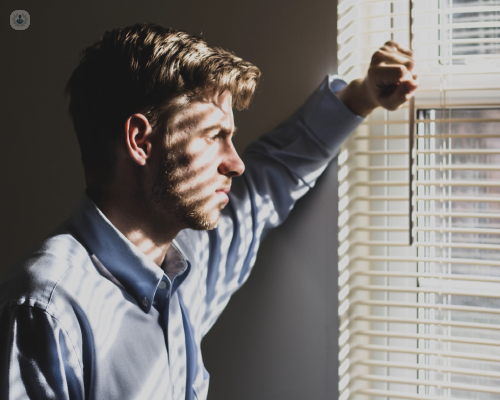Do I have the COVID-19 blues?
Autore:The COVID-19 pandemic has undeniably affected all of our mental well-being. Unfortunately, some of us are experiencing a condition experts are calling the COVID-19 blues, a condition in which mental health suffers due to the drastic changes we're going through due to the pandemic. Dr Nicky Kimber-Rogal, a chartered psychologist and psychotherapist in London, is here to describe this condition in more detail.

Could the COVID-19 blues be similar to, or the same as, situational depression?
Feelings of helplessness, lack of control or “agency” can all be experienced when someone is feeling depressed. It is also useful to distinguish between three terms: demoralisation, depression and sadness. Many people have become demoralised as a result of Covid restrictions, lockdowns, lack of income, and so on.
How would you describe the COVID-19 blues?
Some would describe Covid-19 blues as not feeling the happiness and hope that we usually feel when we have options for the future and things to look forward to. Goal-setting and future structures are helpful in overcoming a sense of sadness. People like to think and believe that they can do things rather than that they can’t – and that they are free (within their cultural and familial norms and upbringing) to act in a way that is beneficial to themselves and others. Whilst man is not an island and we certainly cannot control a number of elements in life, we are nonetheless both independent and social animals. And we can aspire to control and perform in areas which are good for our and others’ well-being.
How can we distinguish between situational depression and clinical depression?
Situational depression typically refers to a reaction to events and can be called reactive depression. Clinical depression is more severe and can involve endogenous (coming from within elements, such as hormonal imbalances or heritability/genetic factors). Regardless of the distinction between the two types, most people will feel low or happy depending on situations and people around them – others’ actions and words will have an effect on them.
Do you think the pandemic might have long-term effects on our mental health?
The pandemic is already having a detrimental effect on people’s health – and on some sectors of society more than others. For example, an economically secure family with a house and garden that is well set up for home-schooling (computers, space, obedient children) will be less affected than low-income families sometimes living in high-rise apartments and without immediate access to parks and play areas. Homeworking is also having an impact; lack of social interaction, lack of exercise (eg travelling to work and back) and sometimes having to balance family and work is taking its toll. Another aspect is the effect on relationships: some partners have a well-structured routine where they do not see as much of each other as they have done during the lockdown, and those living with extended families can also prove to be challenging.
Sportsmen and women have also been affected: raised cortisol levels associated with inactivity have naturally been restricted and often gyms have been closed (for professionals and non-professionals, alike). With inactivity, cortisol levels increases and endorphins decrease. Not only the social, competitive side of sport has been compromised but also fitness levels, the release that comes with high energy exercise and ranking points for sportspeople are all factors.
In terms of long-term mental health, people across the age ranges have been affected by an element of ‘Learned Helplessness’ (a strong theory in the development of depression); obsessive-compulsive disorders have been exacerbated, and even when lockdowns are eased, for many an element of agoraphobia can creep in – those who are usually very outgoing have learned to be timid simply because of the habit of geographical restrictions. In addition, school children can become nervous about returning to education and/or fear that they may infect relatives with the virus.
What can we do to feel better during situational depression?
Ways to combat situational depression is first to ascertain what is in your control and what is not. For example, if you are able to exercise, make a structure each day or week which is reasonable and achievable. There are many online classes to join. Try to think of at least one enjoyable activity each day to look forward to. Link up with as many people as possible – online classes/concerts, walking, telephone calls and when discussing with others be as self-disclosive as possible. Good relationships are based on mutual self-disclosure and during the pandemic, you will find many others are in a similar position to you.
Other activities that people have found helpful are learning a language, playing an instrument, writing a journal, and doing things that you have not had time before to do. Keeping mentally active is very important in terms of increasing well-being and it could be that a friendly call to isolated neighbours/friends/family members will have a positive impact on your own feelings of usefulness and well-being too.
If you think you may be eperiencing COVID-19 blues, you can request an appointment with Dr Kimber-Rogal by visiting her Top Doctors profile.


